About The Ranch
The Ranch in Lisbon Maryland offers specialized programming for men and women over 18 with co-occurring mental health and substance use disorders. The LGBTQ+ community is welcomed in an inclusive and supportive environment and veterans and first responders may find tailored support options.
A Center With Medical Detoxification
The center provides individualized treatment plans tailored for substance use disorders, co-occurring mental health issues and trauma. To keep patients comfortable during care, they offer medical detoxification. The center has residential (inpatient) treatment and outpatient services to support you during your recovery journey.
I really like that their treatment programs integrate holistic options such as equine therapy, expressive arts and adventure therapy. The staff at The Ranch emphasize “healing the whole person—mind, body, and spirit” and the importance of a trauma informed approach.
Clinical directors and therapists are quoted discussing personalized care and “empowering clients to build a meaningful life in recovery.” The center accepts most insurance plans and financial counselors assist with coverage questions.
A Serene Rural Setting
The facility is located on a scenic, rural campus in Maryland, offering a quiet and private environment. Upon arriving, you will find onsite amenities including comfortable, home like living spaces, outdoor walking paths and equestrian facilities for therapeutic programs.
Additionally, activity spaces are available for fitness, meditation, yoga and creative arts. The center offers nutritious, chef prepared meals served daily.
I think one of the best aspects of this center is the positive feedback left from previous patients which highlights compassionate staff and the peaceful, rural setting. Alumni frequently comment on the transformative nature of both clinical and experiential therapies. Previous testimony includes a strong sense of community, individualized care and the team’s success in addressing trauma alongside addiction.
Addiction Treatment Programs
Alcohol Rehab
The best way to achieve recovery from alcohol use disorder is by completing a high-quality alcohol rehab in Maryland and applying the tools you learn to stay in sobriety. These treatment programs offer detox, inpatient treatment, and outpatient care. You may receive individual, group, and family counseling, peer support, and classes in essential life skills.
Opioid Addiction
Facilities that offer substance use treatment in Maryland can give you the skills and tools you need to break free from opioid addiction. The rehab program may use multiple approaches, including nutrition, psychology, holistic methods, and support groups. These tools help you build a substance-free lifestyle and move into long-term recovery.
Drug Rehab
If you’re ready to overcome substance use disorder, a drug rehab in Maryland can give you the tools you need. These treatment programs offer detox, inpatient treatment, and outpatient care. You may receive individual, group, and family counseling, peer support, and classes in essential life skills.
Men's Rehab
A men’s rehab in Maryland can provide every level of care while addressing the unique needs of men. These treatment programs offer detox, inpatient treatment, and outpatient care tailored to the unique needs and challenges men face, which may include questions about career, fatherhood, family relationships, emotional vulnerability, and more.
Young Adult Rehab
A young adult rehab in Maryland addresses the recovery needs of clients in this life stage and gives them the tools they need to succeed. These treatment programs offer detox, inpatient treatment, and outpatient care tailored to the unique needs and challenges of young adults.
Insurance Coverage
Private insurance
If you have private insurance in Maryland, contact the insurer for details about using your plan to pay for some or all of the cost of rehab. You may have out-of-pocket costs such as a deductible or copay, and you’ll want to look for a treatment center in-network with your insurance coverage.
Self-pay options
Using self-pay in Maryland makes it easy to choose the treatment center you want. You can use a medical loan from a bank or credit union, write a check, or send money to the center electronically. The payment structure may vary depending on the type of care.
Sliding scale payment assistance
If you need help with substance use in Maryland but need help paying for treatment, a sliding scale payment plan may be a good solution. You may need to provide financial documentation for your income and family size, but the lower fees will make it much easier to get the care you need.
Medicaid
One way to pay for rehab in Maryland is to use Medicaid if you qualify for the coverage. You can access multiple types of treatment in centers that accept Medicaid, including detox, inpatient, and outpatient care.
Levels of Care
- 1
Inpatient Rehab
If you’re starting out on your recovery journey, inpatient treatment can give you the focused, supportive environment you need to build a solid foundation. Building a new life for yourself is challenging, and the focused, uninterrupted treatment you receive during inpatient care can help you lay that foundation.
- 2
Outpatient Rehab
If you struggle with addiction in Maryland, outpatient care is one option for rehab. You’ll live at home or in sober living outside of sessions. Some of the elements of outpatient treatment include individual and group counseling, skill-building, relapse prevention, and help with essentials like employment and housing.
- 3
Aftercare Support
Aftercare in Maryland will help you connect with resources and support from others so you can encourage each other over the long term. Aftercare may include ongoing counseling, additional life-skills training, peer support, and recovery support groups.
- 4
Sober Living Homes
During sober living in Maryland, clients live in a safe, substance-free home and can build relationships with others in recovery. Sober living may provide access to ongoing counseling, additional life-skills training, peer support, and recovery support groups.
Therapies
Experiential Therapy
Experiential therapy allows you to use activities such as art and music to express your emotions and work through trauma. During treatment, you may take part in art projects, musical expression, or physical challenges like an obstacle course. These allow you to process emotions in a non-traditional way.
Family Therapy
If you struggle with addiction in Maryland, it’s common to have broken and dysfunctional family relationships. Family therapy can help you address those issues and find support from your loved ones. Family therapy can mean addressing uncomfortable and challenging issues, but having a professional therapist facilitating the sessions makes it easier for everyone to share honestly and improve their relationships.
Group Therapy
If you struggle with addiction in Maryland, it’s common to feel like no one understands you. Group therapy can help you find common perspectives and support. Some of the topics covered in group therapy include overcoming shame and guilt, improving communication, developing healthy coping skills, and building a support network.
Individual Therapy
In Maryland, individual therapy allows you to work one-on-one with a professional to address your past experiences and substance use triggers. This support and accountability help you establish recovery. Individual therapy sessions generally last 60 minutes and may include discussing a specific issue, education about specific topics, or developing life skills.
Trauma Therapy
When you’ve experienced trauma, it’s natural to try to protect yourself from further harm. Trauma-informed therapy in Maryland can help you see how substance use is connected to your past experiences and how you can learn to care for yourself in healthier ways. Trauma-informed therapy is a normal part of evidence-based treatment programs and may be a part of inpatient treatment, outpatient care, or both. Methods include sharing of experiences, peer support, mindfulness practices, and more.
Accreditations
Location
Contact The Ranch
Top Drug Rehab Centers in Maryland
-
 Maryland
MarylandA Helping Hand Health Services
6401 Dogwood Road, Suite 201 Pikesville, Maryland 21207
-
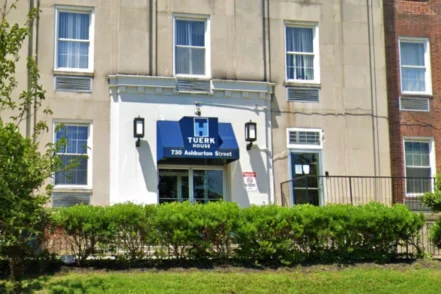 Maryland
MarylandTuerk House Baltimore
730 Ashburton Street Baltimore, Maryland 21216
-
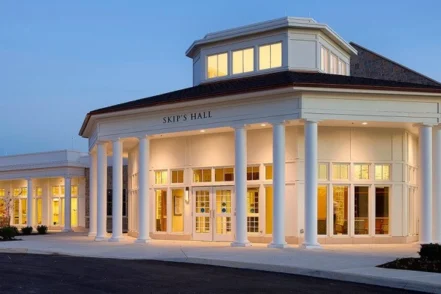 Maryland
MarylandAshley Addiction Treatment Havre De Grace
800 Tydings Lane Havre De Grace, Maryland 21078
-
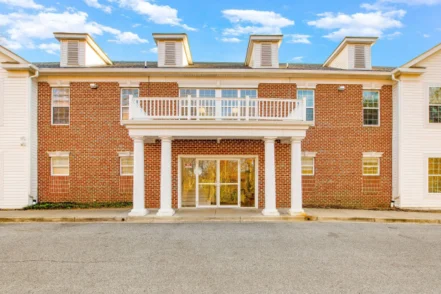 Maryland
MarylandAvenues Recovery Center at Prince Frederick
125 Fairground Road Prince Frederick, Maryland 20678
-
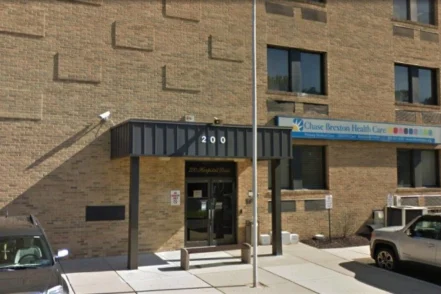 Maryland
MarylandChase Brexton Health Care Glen Burnie
200 Hospital Drive, Suite 300 Glen Burnie, Maryland 21061
-
 Maryland
MarylandTranquility Woods Treatment
171 A Ryan Road Pasadena, Maryland 21122
-
 Maryland
MarylandMaryland Addiction Recovery Center
8600 Lasalle Road, Suite 212 Towson, Maryland 21286
-
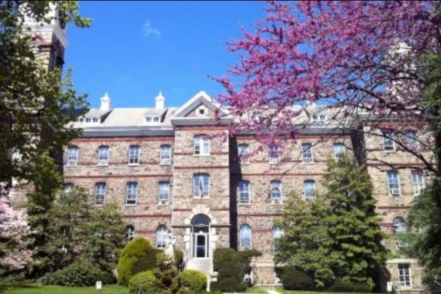 Maryland
MarylandMountain Manor Treatment Center Emmitsburg
9701 Keysville Road Emmitsburg, Maryland 21727
-
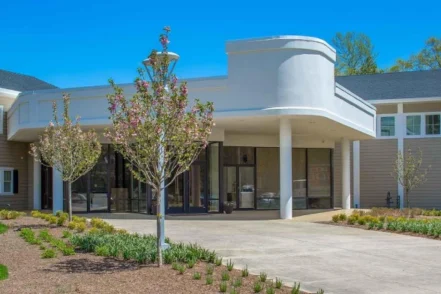 Maryland
MarylandRecovery Centers of America Capital Region
11100 Billingsley Rd Waldorf, Maryland 20602

